
Choosing the Right E-commerce Platform for Your Creations
Introduction:
For e-sellers who invest time and passion in crafting or designing their own products, choosing the right e-commerce platform is a pivotal decision that can significantly impact the success of their online venture. With numerous platforms available, each catering to different needs and audiences, finding the perfect fit is essential. This article explores key considerations for self-made e-sellers aiming to select the most suitable e-commerce platform, focusing on factors that can enhance visibility, streamline operations, and drive sales.
Understanding Your Products and Audience:
1.Product Type: Consider the nature of your products. Whether they are handmade, vintage, or require customization can influence the platform choice.
2.Target Audience: Understand your target audience. Some platforms may attract specific demographics or cater to particular niches.
GET EXCLUSIVE ACCESS TO OUR EXPERTS CREATOR'S CORNER TIPS AND ADVICE:
- Get AHEAD of the Competition.
- FREE Membership to Mia’s Weekly Insiders secrets.
- FREE tailored resources and gifts.
- PLUS qualify to receive personal email support.

* We respect your privacy. We will not spam you.
Popular E-commerce Platforms:
1.Etsy:
Ideal for Handmade and Unique Creations: Etsy is renowned for its focus on handmade, vintage, and unique items, making it perfect for e-sellers with distinct products.
Community-Oriented: The platform fosters a sense of community, attracting buyers seeking one-of-a-kind items and personalized experiences.
2.Shopify:
Versatile and Customizable: Shopify offers versatility for various product types. Its customizable features suit a range of e-sellers, from artisans to drop-shippers.
Integrated Payment Options: Shopify provides seamless integration with various payment gateways, enhancing the customer checkout experience.
3.Amazon:
Global Reach: Amazon provides access to a vast customer base globally. Ideal for e-sellers looking to tap into a broader market.
Fulfillment Services: With Amazon FBA (Fulfillment by Amazon), e-sellers can leverage efficient shipping and customer service solutions.
4.WooCommerce (WordPress):
WordPress Integration: WooCommerce seamlessly integrates with WordPress websites, offering flexibility and control over the online store’s design and functionality.
Plugin Ecosystem: A wide range of plugins allows customization and expansion according to specific e-seller needs.
Key Considerations for Platform Selection:
1.Fees and Costs:
Transaction Fees: Understand the transaction fees associated with each platform. Some platforms charge a percentage per sale, impacting your profit margins.
Subscription Plans: Consider the subscription plans offered by platforms. Evaluate whether the features provided align with your business requirements.
2.Ease of Use:
User-Friendly Interface: Choose a platform with an intuitive interface, especially if you are new to e-commerce. Ease of use streamlines product listings and store management.
3.Visibility and SEO:
Search Engine Optimization (SEO): Opt for a platform that allows effective SEO optimization. Higher visibility on search engines can drive organic traffic to your store.
Marketplace Exposure: Some platforms, like Etsy and Amazon, provide built-in marketplaces that expose your products to a broader audience.
4.Customization and Branding:
Brand Representation: Evaluate the level of customization each platform allows. A consistent and branded look enhances your store’s identity.
Templates and Themes: Explore available templates and themes. Shopify and WooCommerce offer extensive options for customizing the look of your store.
5.Payment Options and Security:
Payment Gateway Compatibility: Ensure that the platform supports your preferred payment gateways. Diverse payment options cater to a broader customer base.
Security Features: Prioritize platforms with robust security features to safeguard customer information and build trust.
Operational Considerations:
1.Inventory Management:
Inventory Tracking Tools: Select a platform with robust inventory management tools. This helps in tracking stock levels, preventing overselling, and managing product variations.
2.Shipping and Fulfillment:
Shipping Integration: Look for platforms that integrate seamlessly with shipping carriers. Streamlining the shipping process enhances efficiency.
Fulfillment Services: Evaluate whether the platform offers fulfillment services or integrates with third-party fulfillment providers if needed.
Customer Support and Community:
1.Support Services:
24/7 Support: Prioritize platforms that offer reliable customer support. Quick assistance is crucial for resolving issues promptly.
Community Forums: Platforms with active community forums provide opportunities to learn from other e-sellers’ experiences and receive valuable advice.
Scaling Options:
1.Scalability:
Future Growth: Consider your long-term goals. Choose a platform that accommodates growth and can scale with your business.
Integration with External Tools: Assess the platform’s ability to integrate with external tools and applications as your business expands.
Measuring Success:
1.Sales Analytics:
Sales Reports: Utilize sales analytics tools provided by the platform. Track sales, customer behavior, and popular products to make informed decisions.
Conversion Rates: Monitor conversion rates to assess how effectively your platform turns visitors into customers.
2.Customer Feedback:
Reviews and Ratings: Pay attention to customer reviews and ratings on the platform. Positive reviews enhance credibility and trust among potential buyers.
Conclusion:
Selecting the right e-commerce platform is a crucial step for creative e-sellers looking to showcase and sell their unique creations. By carefully considering factors such as product type, target audience, fees, ease of use, and operational capabilities, e-sellers can align their businesses with platforms that amplify visibility and streamline operations. Whether opting for specialized platforms like Etsy or versatile solutions like Shopify, the choice ultimately depends on individual business needs and long-term goals.
MORE LIKE THIS...
Bringing you the latest information, ideas, products and services for your E-commerce business.
Copyright 2024 E-Market Pulse
Contact Us
We may receive compensation from partners listed through affiliate partnerships, at no cost to you. This doesn’t influence our ratings, and the opinions are our own
Subscribe to our Newsletter
Get updates on products and services specially targeted to help you succeed.
